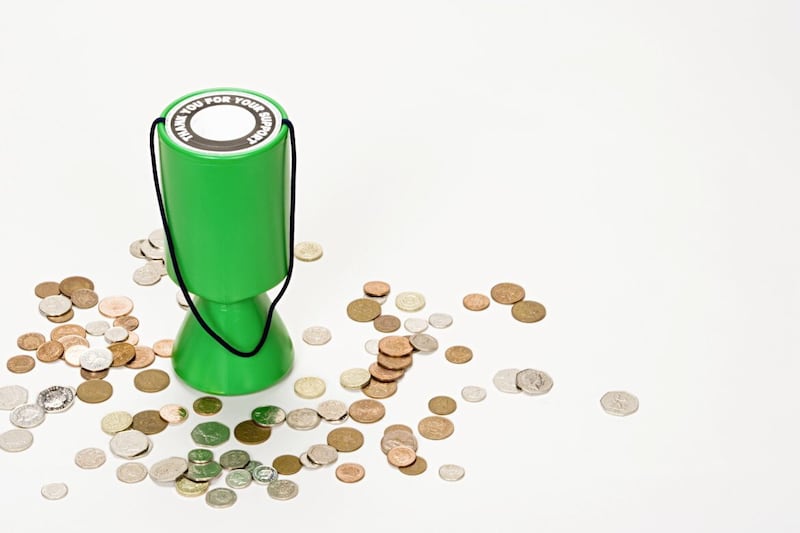THE key steps to help you stay healthy and free of long-term aches and pains are no great secret — regular exercise, watch your weight and eat a healthy diet.
But scientists have now identified another, more unlikely factor that can have a remarkably significant impact: giving to charity.
Mounting evidence suggests that simple acts of altruism such as donating money, volunteering your time for free or even simple acts of kindness can be a major benefit to health — potentially helping us to live longer and bolstering our immune systems.
Following this, London University researchers wanted to see if doing things for others — so-called pro-social behaviour — could also cut the risk of chronic pain, defined as pain lasting three months or more.

As well as the physical suffering, some studies suggest up to 85 per cent of those affected by chronic pain become depressed as a result. This can often reduce the motivation to take self-help measures that might ease pain, such as regular, gentle exercise.
For the recent study, the researchers examined data from 48,000 people who were taking part in a long-term investigation into all aspects of health, called the UK Household Longitudinal Survey, from 2011 to 2020: this included data on so-called pro-social behaviour (essentially, doing things for others’ benefit) and rates of chronic pain.
Read more:
People who are physically active may have higher pain tolerance – study
Proof that positive thinking really can help tackle illness
The study participants were asked whether they had donated money to charity in the past 12 months and, if so, how much.
Just over two thirds said they had given money to good causes, while almost one in five had done some volunteer work in the same period.
The researchers matched these details against the number of participants who said chronic pain had seriously disrupted their lives over the nine-year study period.

The results, published last month, showed that those who donated money to charity had a reduced risk of experiencing pain or reporting chronic pain of any kind, while doing some voluntary work had an even bigger impact.
And the greatest benefits were seen in those who did both.
The researchers suggested the most likely explanation for this is that volunteering usually involves some kind of physical activity which stimulates the release of endorphins, the body’s own pain relievers and mood enhancers.
But simply making a donation may have a similar effect.

Writing in the Journal of Psychosomatic Research, the researchers said: ‘Pro-social behaviour also promotes better mental health, and we know physical pain and mental health are highly inter-related.’
‘Endorphins are produced when you manage to achieve something you set out to do,’ explains Dr Audrey Tang, a psychologist.
‘They tend to hang around in the body afterwards, which is why they can relieve chronic pain.’
However, research suggests the benefits of being kind go beyond preventing pain.
A 2013 study by psychologists at Arizona State University found that people aged over 55 who offered to help others or charities for free were at least 24 per cent less likely to die prematurely than others the same age who did not.
This could be crucial for people trying to maintain their physical and mental health after retirement, says Dr Tang. ‘As well as the social interaction, you’re exercising and keeping joints mobile and supple.’

Other studies show that acts of kindness can reduce the risk of cardiovascular disease — primarily by lowering levels of stress hormones such as cortisol that can drive up blood pressure. High blood pressure is a major risk factor for heart attacks and strokes.
And simply watching somebody else being altruistic can even boost your ability to fight off infections.
For one landmark study back in 1988, researchers at Harvard University in the US asked a group of volunteers to watch a video highlighting the kind acts of charity carried out in India by Mother Teresa.
A second group was asked to watch a film about Hitler’s exploits in World War II. Researchers took blood samples before and after to measure the participants’ levels of immunoglobulin A, a substance released by the immune system as a defence against bacteria, toxins or viruses.

The results showed those who saw Mother Teresa’s altruistic behaviour experienced a sudden spike in immunoglobulin A, while those viewing the Hitler showreel had no change.
The idea that even bearing witness to an act of kindness is enough to influence your own health became known as the ‘Mother Teresa effect’:
‘But,’ says Dr Tang, ‘You’ll probably get more benefit from carrying out an altruistic act than just seeing someone do it.’






